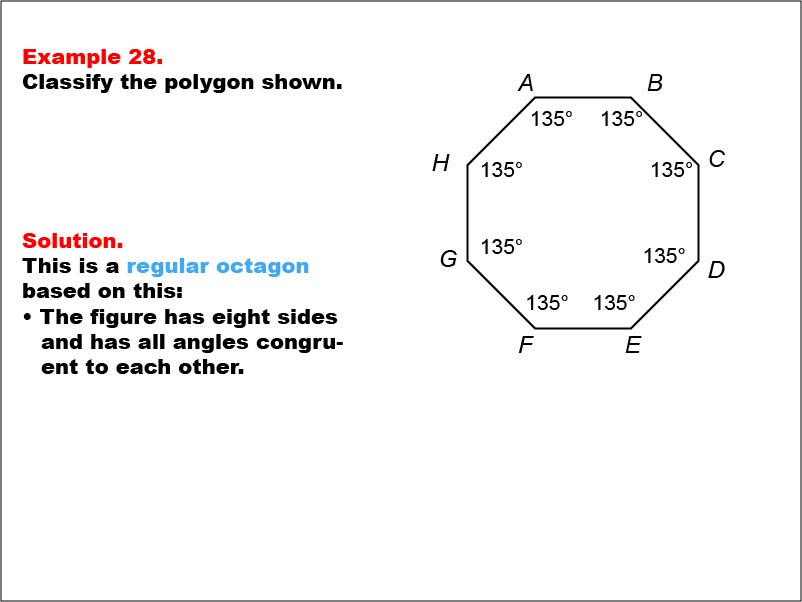
Display Title
Math Example--Polygons--Polygon Classification: Example 28
Display Title
Math Example--Polygons--Polygon Classification: Example 28

Topic
Polygons
Description
This example showcases an octagon with all angles labeled as 135 degrees, indicating congruent angles. It demonstrates that a regular octagon can be identified not only by equal side lengths but also by equal angle measures, reinforcing the dual criteria for regularity in polygons.
Understanding polygon classification is crucial in geometry as it helps students recognize and categorize shapes based on their properties. This collection of examples highlights different aspects of regular octagons, emphasizing both side length and angle measure as defining characteristics.
Exposure to multiple worked-out examples is vital for students to develop a comprehensive understanding of polygon classification. Each example presents a unique perspective, allowing students to explore various ways of identifying regular polygons and reinforcing the concept through diverse representations.
Teacher's Script: Notice the angle measures in this octagon, class. What does it mean when all angles are 135 degrees? How does this information help us classify the polygon? Let's discuss why regular octagons always have 135-degree angles and how this relates to the total angle sum of an octagon.
For a complete collection of math examples related to Polygons click on this link: Math Examples: Polygon Classification Collection.
| Common Core Standards | CCSS.MATH.CONTENT.5.G.B.3, CCSS.MATH.CONTENT.7.G.B.6 |
|---|---|
| Grade Range | 6 - 8 |
| Curriculum Nodes |
Geometry • Polygons • Definition of a Polygon |
| Copyright Year | 2013 |
| Keywords | polygons, classification |